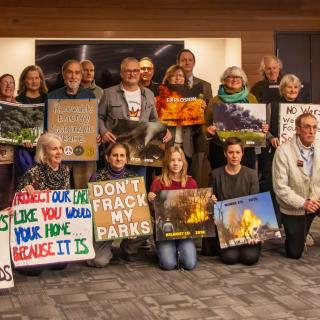More than a few have wondered why the Green Party headed for Houston in August to nominate Jill Stein for President. I heard a few press observers note that maybe it was because Houston is one of the hottest and most polluted cities in the nation – perhaps more in need of Stein’s proposed Green New Deal than any other major U.S. city.
The reality is that the national Greens chose Houston because the state Party there practices thoroughgoing grassroots democracy. Simply put, Houston’s state Green Party had the best proposal. The Ohio Greens had proposed Toledo and were a finalist, with a vision of the Cleveland fascistic Republican convention contrasted with adecentralized democratic meeting in the city that is, for all practical purposes, a suburb of Detroit.
Prior to the Saturday, August 6 nominating convention, there were no major questions outstanding. Stein was the presumptive nominee, had chosen her Vice President, and her platform was clear. This is despite the fact in the past few months, Stein had offered Bernie Sanders to be the Green Party presidential nominee (with Stein as VP), and offered former Ohio State Senator, Sanders supporter, and renegade Democrat Nina Turner a spot as her running mate.
There was also talk of Cornel West as a VP candidate. But in the end, Stein turned to a stalwart human rights activist with ties to the Black Lives Matter movement to balance the ticket and reach out to the Party’s growing minority base, Ajamu Baraka.
The two most fiery calls to action during Stein’s nomination process were from the always eloquent Cornel West and YahNe Ndgo. Ndgo, as if conjuring up the spirit of “criticism/self-criticism” from the 1970s, appealed far more to the primarily white 200 or so Green Party delegates than the numerous Bernie-or-Bust observers, who broke into frequent chants of “Jill! Not Hill!”
There was some tension in Stein’s nominating process when presidential hopeful Sedinam Kinamo Christin Moyowasifza-Curry immediately objected to the Alabama delegation casting their votes, because she claimed she had not been invited to that state. Moyowasifza-Curry has argued vigorously for the Green Party becoming a minority-led vehicle to advance issues of concern to people of color.
Although there were frequent procedural objections from the floor by Moyowasifza-Curry, Stein easily won the nomination. The platform that, among other things, calls for reparations for African Americans, passed with little debate and only one dissenting vote.
The Ecological Economics amendment placed the Green Party firmly on the record as a Left eco-socialist party, reading in part: “…The Green Party seeks to build an alternative economic system based on ecology and decentralization of power, an alternative that rejects both the capitalist system that maintains private ownership over almost all production as well as the state-socialist system that assumes control over industries without democratic, local decision making…” and “…“addresses the economic inequalities, social inequalities, and productivism of both capitalism and state socialism and emphasizes grassroots democracy in the workplace.”
The platform also included the Green Party’s commitment to election integrity, calling for the end to all privately-owned proprietary computer codes in the U.S. electronic voting process.
A highlight of the convention was a livestream by Julian Assange from the Ecuadorian Embassy in Britain. He spoke to the crowd about movements like the Green Party and how they keep American politics “honest.” He repeated his assertion that asking people to vote between Trump and Clinton is like asking people to choose between “cholera and gonorrhea.” Both Assange and West argued that the legendary “triangulation” of the Clintons, while they govern from the corporate center, is fanning the flames of right-wing takeovers to hold the Left at bay.
Stein asserted that all the fears of a Trump presidency – naked oligarchies, endless wars – actually occurred during Hillary Clinton’s tenure as secretary of state. Stein also pointed out, along with West, that the current U.S. mass incarceration state that has disproportionately arrested blacks and Latinos was fueled on the federal level by the policies of Bill Clinton.
The key unanswered question from the convention is how many of the Berners will bolt from the preference of their leader and dedicate their energy and enthusiasm to the Stein campaign. Reports are already coming in of record small donations to the Stein campaign. In a press conference following her nomination, Stein said she had raised more money in the last three weeks than in the first year and half of her campaign.
Will the long sought-after, post-60s dream of an eco-socialist alliance, with state and local elected officials finally breakthrough in 2016?
Bob Fitrakis, Co-Chair of the Ohio Green Party, was an alternative delegate to the 2016 national Green Party convention and is the Federal Election Commissioner of the Green Shadow Cabinet.






